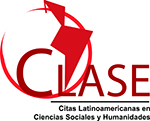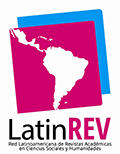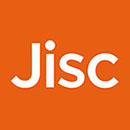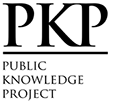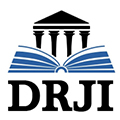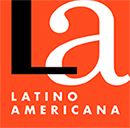Patentes: flexibilidade do TRIPS em resposta à pandemia do COVID-19. Lições aprendidas e perspectivas para a política futura
Resumo
A emergência sanitária gerada pela Pandemia COVID -19, tem provocado um profundo debate a respeito da atribuição dos direitos de Propriedade Industrial (PI), entre os quais mantém que, esses direitos podem obstaculizar o desenvolvimento, a fabricação e a distribuição de produtos essenciais para fazer frente aos efeitos da Pandemia. E também estão aqueles, que no sentido oposto argumentam, que a proteção dos direitos de PI, é fundamental para o estímulo da inovação e transferência de tecnologia. Neste contexto, o presente artigo, demonstrando exemplos concretos com referências à atual pandemia e outros exemplos do passado; tem como objetivo o análise da manifestada colisão, entre os direitos exclusivos que desfrutam aqueles que são os detentores das patentes, e o interesse geral da sociedade, na disponibilidade e efetivo acesso de maneira igualitária aos medicamentos essenciais, em relação às diferentes medidas disponíveis tanto quanto com o legislativo ou o internacional.
Assim como também as diferentes iniciativas, como por exemplo: a proposta de renúncia temporária dos direitos de PI aṕresentada à OMC por alguns países, atualmente em debate internacional. Conclui-se que a procura do equilíbrio tem que passar pela cooperação internacional, que possa estabelecer uma delicada avaliação, para satisfazer o interesse pelo acesso a tecnologias essenciais para contrariar a pandemia, salvaguardando os estímulos para a inovação, e também contribuir para uma imagem regulatória, que possa fazer frente às possíveis crises sanitárias futuras.
O artigo esta organizado do modo seguinte: Parte 1: Contextualizar o atual debate. Parte 2: Fazer análise desde uma perspectiva histórica, da colisão entre os direitos de PI e a saúde pública, evidenciando as flexibilidades oferecidas pelo ADPIC, como assim também casos específicos da aplicação de licenças forçosas. Parte 3: Partindo de casos acontecidos durante a pandemia, e que deram lugar ao debate público, faz análise das flexibilidades do ADPIC, em particular as licenças forçosas, como uma medida de resposta ao COVID-19; descrevendo as principais medidas adotadas por alguns Estados, como assim também iniciativas de tipo “voluntariado”. Parte 4: Faz análise das diferentes posições em relação ao debate atual, com respeito às propostas de suspensão generalizada dos direitos de PI em tempos de pandemia. Parte 5: Esboça conclusões.
Downloads
Referências
Abbott, F. M. (2002). The TRIPs agreement, access to medicines, and the WTO Doha ministerial conference. The Journal of World Intellectual Property, 5(1), 15-52.
Abbott, F. M. (2020). The TRIPS Agreement Article 73 Security Exceptions and the COVID-19 Pandemic. Research Paper. http://dx.doi.org/10.2139/ssrn.3682260.
Akpotaire, U. B. (2010). HIV and AIDS in Africa: Compulsory Licensing Under TRIPS and DOHA Declaration. http://dx.doi.org/10.2139/ssrn.1719555.
Argentina pide licencia compulsiva de droga contra gripe aviar. (18 de octubre de 2005). La Nación. https://www.nacion.com/economia/argentina-pide-licencia-compulsiva-de-droga-contra-gripe-aviar/NZXJX7NXBFELHHYUZTLUSLDAY4/story/.
Baachus, J. (2020). An Unnecessary Proposal: A WTO Waiver of Intellectual Property Rights for COVID-19 Vaccines. Cato Institute, Free Trade Bulletin 78.
Barbosa, D. (2019). Tratado da Propriedade Intelectual (2ª ed.). Lumen Juris Editora.
Binctin, N., Bourdon, R., Dhenne, M. y Vial, L. (2020). Feedback on the Intellectual Property Action Plan Roadmap of the European Commission. Institut Stanislas De Boufflers.
Bonadio, E. (2012). Compulsory licensing of patents: the Bayer/Natco case. European Intellectual Property Review, (10), 719-728.
Bonadio, E. (24 de febrero de 2021). Intellecual Property and COVID-19 medicines: Why a WTO waiver may not be enough? The Conversation. https://theconversation.com/intellectual-property-and-covid-19-medicines-why-a-wto-waiver-may-not-be-enough-155920.
Bonadio, E. y Baldini, A. (2020). COVID-19, Patents and the never-ending tension between proprietary rights and the protection of public health. European Journal of Risk Regulation, 11(2), 390-395.
Bundesministerium der Justiz und für Verbraucherschutz. (2000). Ley para la Prevención y Control de Enfermedades Infecciosas en Humanos. https://www.gesetze-im-internet.de/ifsg/index.html?_sm_au_=iVVvns5WHQ11sMDPvMFckK0232C0F.
Carr, D. (31 de enero de 2020). Sharing research data and findings relevant to the novel coronavirus (COVID-19) outbreak. Wellcome. https://wellcome.org/coronavirus-covid-19/open-data.
Caso, R. (8 de febrero de 2021). Vaccini proprietà di pochi o bene comune dell’umanità? https://www.robertocaso.it/2021/02/08/vaccini-proprieta-di-pochi-o-bene-comune-dellumanita/.
Cassata, C. (11 de marzo de 2021). Here’s How It Was Possible to Develop COVID-19 Vaccines So Quickly. Healthline. https://www.healthline.com/health-news/heres-how-it-was-possible-to-develop-covid-19-vaccines-so-quickly.
Champ, P. y Attaran, A. (2002). Patent rights and local working under WTO TRIPS agreement: An analysis of the US-Brazil patent dispute. Yale Journal of International Law, 27(2), 365-393.
Choy, K. Y. y Lo, J. Y. (2020). COVID-19 Patent controversy. Hong Kong Lawyer. The official Journal of the law society of Hong Kong. http://www.hk-lawyer.org/content/covid-19-patent-controversy.
Contreras, J. L. (2021). The Open COVID Pledge: Design, Implementation and Preliminary Assessment of an Intellectual Property Commons. University of Utah College of Law Research Paper No. 416. https://ssrn.com/abstract=3780850.
Correa, C. M. (2002). Public health and intellectual property rights. Global Social Policy, 2(3), 261-278.
Correa, C. M. (2005). TRIPS agreement and access to drugs in developing countries. SUR-International Journal on Human Rights, 2(3).
Correa, C. M. y Velásquez, G. (2019). Access to Medicines: Experiences with Compulsory Licenses and Government Use-The Case of Hepatitis C. South Centre, Research Paper 85.
Desantes, M. (2020). The Disruptive Nature of the So-Called Fourth Industrial Revolution for Intellectual Property: Moving Societal Changes from Linear to Exponential. En Heath, C., Kamperman Sanders, A. y Moerland, A. (Eds.), Intellectual Property Law and the Fourth Industrial Revolution (pp. 3-28). Wolters Kluwer.
Dhenne, M. (14 de abril de 2020). Compulsory licensing and COVID-19 vaccines: when fake news spoil the public debate. Kluwer Patent Blog. http://patentblog.kluweriplaw.com/2021/04/14/compulsory-licensing-and-covid-19-vaccines-when-fake-news-spoil-the-public-debate/.
Dhenne, M. (1 de mayo de 2020). COVID-19, patents and access to healthcare: a French perspective. http://dx.doi.org/10.2139/ssrn.3614409.
DiMasi, J. A., Grabowski, H. G. y Hansen, R. W. (2016). Innovation in the pharmaceutical industry: new estimates of R&D costs. Journal of Health Economics, (47), 20-33.
Docdot Provides Healthcare Professionals with a Medical Grade COVID-19 Remote Diagnosis App. (8 de mayo de 2021). The Journal of mHealth. https://thejournalofmhealth.com/docdot-provides-healthcare-professionals-with-a-medical-grade-covid-19-remote-diagnosis-app/.
Duro, L. (15 de mayo de 2020). Como evitar violações aos direitos de propriedade intelectual na pandemia. Consultor Jurídico. https://www.conjur.com.br/2020-mai-15/laura-duro-covid-19-direitos-propriedade-intelectual.
Easy COVID-19. (2020). Isinnova. https://www.isinnova.it/easy-covid19.
European Patent Office. (2018). Compulsory licensing in Europe. https://www.epo.org/learning/materials/compulsory-licensing-in-europe.html.
European Patent Office. (2020). European patent applications. https://www.epo.org/about-us/annual-reports-statistics/statistics/2020/statistics/patent-applications.html#tab3.
Fisher, W. (2001). Theories of intellectual property. Cambridge.
Hilty, R. (15 de marzo de 2021). Interfering with patent protection means playing with fire. Max-Planck-Gesellschaft. https://www.mpg.de/16579491/patent-protection-vaccines-covid-10-reto-hilty.
Hohne, C. (8 de marzo de 2019). Compulsory licenses in Germany: a tool for licensing negotiations? European Pharmaceutical Review. https://www.europeanpharmaceuticalreview.com/article/84768/compulsory-licenses-in-germany-a-tool-for-licensing-negotiations/.
Honorable Cámara de Diputados de la Nación. (22 de julio de 2020). Proyecto de Resolución. Expediente 3691-D-2020. https://www.diputados.gob.ar/proyectos/proyecto.jsp?exp=3691-D-2020.
Hooker, L. y Palumbo, D. (2020). COVID vaccines: Will companies make bumper profits? BBC News. https://www.bbc.com/news/business-55170756.
Instituto Nacional de Propiedad Intelectual de Chile. (2020). Resolución Nº 896. https://www.camara.cl/verDoc.aspx?prmId=3885&prmDestinoId=3&prmTipo=RESOLUCIONENVIO.
International Federation of Pharmaceutical Manufacturers & Associations. (2019). The Complex Journey of a Vaccine Part III. The Steps Behind Developing a New Vaccine. https://www.ifpma.org/wp-content/uploads/2019/07/IFPMA-ComplexJourney-2019_Stage-5_Web_High-Res.pdf.
Isaacson, W. (11 de enero de 2021). mRNA Technology Gave Us the First COVID-19 Vaccines. It Could Also Upend the Drug Industry. Time. https://time.com/5927342/mrna-covid-vaccine/.
Joffre, T. (16 de marzo de 2020). Israel Health Ministry approves experimental treatments for coronavirus. The Jerusalem Post. https://www.jpost.com/Israel-News/Health-Ministry-approves-experimental-treatments-for-coronavirus-621209.
Jones, R. (2020). Ten innovations in the fight against COVID-19. Raconteur. https://www.raconteur.net/healthcare/healthcare-innovation-covid/.
Jordan, J. y Weispfenning, R. (2020). Medtronic Shares Ventilation Design Specifications to Accelerate Efforts to Increase Global Ventilator Production. Medtronic. https://newsroom.medtronic.com/news-releases/news-release-details/medtronic-shares-ventilation-design-specifications-accelerate.
Kokawole Oke, E. (2020). Is the national security exception in the TRIPS agreement a realistic option in confronting COVID-19? Ejil:Talk! https://www.ejiltalk.org/is-the-national-security-exception-in-the-trips-agreement-a-realistic-option-in-confronting-covid-19/.
Larson, N. (2021). Waiving IP will not boost vaccine production: pharma group. Medical Press. https://medicalxpress.com/news/2021-02-waiving-ip-boost-vaccine-production.html.
Larson, N. (23 de febrero de 2021). Waiving IP will not boost vaccine production. Medical Press. https://medicalxpress.com/news/2021-02-waiving-ip-boost-vaccine-production.html.
Letter to Dr Tedros Adhanom Ghebreyesus. (23 de marzo de 2020). https://www.keionline.org/wp-content/uploads/President-MoH-Costa-Rica-Dr-Tedros-WHO24March2020.pdf.
Lichtman, D. (2018). The Central Assumptions of Patent Law: A Response to Ana Santos Rutschman’s IP Preparedness for Outbreak Diseases. UCLA Law Review, (65), 1268-1275.
Mancini, D. P. y Kuchler, H. (23 de marzo de 2020). AbbVie drops patent rights for Kaletra antiviral treatment. Financial Times. https://www.ft.com/content/5a7a9658-6d1f-11ea-89df-41bea055720b.
Maurer, S. M. (2015). Intellectual Property Incentives: Economics and Policy Implications. En Dreyfuss, R. y Pila, J. (Eds.), The Oxford Handbook of Intellectual Property Law. Oxford University Press.
McDonnell Boehnen Hulbert & Berghoff LLP. (12 de marzo de 2021). BIO and PhRMA Urge Biden Administration to Oppose Proposed WTO TRIPS Waiver. JDSupra. https://www.jdsupra.com/legalnews/bio-and-phrma-urge-biden-administration-7725255/.
McGahan, A. M., Bogers, M. L., Chesbrough, H. y Holgersson, M. (26 de noviembre de 2020). Tackling Societal Challenges with Open Innovation. California Management Review. https://doi.org/10.1177/0008125620973713.
McNabb, M. (2021). Draganfly’s COVID-19 Vaccine Delivery Solution. Drone Life. https://dronelife.com/2021/02/05/draganflys-covid-19-vaccine-delivery-solution/.
Mercurio, B. (2021). WTO Waiver from Intellectual Property Protection for COVID-19 Vaccines and Treatments: A Critical Review. Virginia Journal of International Law Online (forthcoming 2021). http://dx.doi.org/10.2139/ssrn.3789820.
Milken Institute. (2021). COVID-19 Treatment and Vaccine Tracker. https://covid-19tracker.milkeninstitute.org/#vaccines_.
Morgan, B. (2021). 10 Examples Of Healthcare Innovation In The Face Of COVID. Forbes. https://www.forbes.com/sites/blakemorgan/2021/02/01/10-examples-of-healthcare-innovation-in-the-face-of-covid/?sh=90627a8680d4.
Muscolo G. y Luzzati A. (2021). Pharma & COVID-19: An Overview Of Eu And National Case Law. Concurrences. https://www.concurrences.com/en/bulletin/special-issues/pharma-covid-19/pharma-covid-19-an-overview-of-eu-and-national-case-law-99409-en#nb13.
Organización Mundial de la Salud. (2002). Repercusiones de la declaración de Doha relativa al acuerdo sobre los ADPIC y la salud pública / Carlos M. Correa. https://apps.who.int/iris/handle/10665/68356.
Organización Mundial de la Salud. (2020a). Alocución de apertura del Director General de la OMS en la rueda de prensa para las misiones diplomáticas sobre la COVID-19 celebrada el 12 de marzo de 2020. https://www.who.int/es/director-general/speeches/detail/who-director-general-s-opening-remarks-at-the-mission-briefing-on-covid-19---12-march-2020.
Organización Mundial de la Salud. (2020b). Boost for global response to COVID-19 as economies worldwide formally sign up to COVAX facility. https://www.who.int/news/item/21-09-2020-boost-for-global-response-to-covid-19-as-economies-worldwide-formally-sign-up-to-covax-facility.
Organización Mundial de la Salud. (2020c). COVID-19 Technology Access Pool. https://www.who.int/initiatives/covid-19-technology-access-pool.
Organización Mundial de la Salud. (2020d). Members to continue discussion on proposal for temporary IP waiver in response to COVID-19. https://www.wto.org/english/news_e/news20_e/trip_10dec20_e.htm.
Organización Mundial de la Salud. (2020e). Solidarity Call to Action. https://www.who.int/emergencies/diseases/novel-coronavirus-2019/global-research-on-novel-coronavirus-2019-ncov/covid-19-technology-access-pool/solidarity-call-to-action.
Organización Mundial de la Salud. (2021a). Coronavirus (COVID-19). https://covid19.who.int/.
Organización Mundial de la Salud. (2021b). Members discuss TRIPS waiver request, exchange views on IP role amid a pandemic. https://www.wto.org/english/news_e/news21_e/trip_23feb21_e.htm.
Organización Mundial del Comercio. (2001). Declaración relativa al acuerdo sobre los ADPIC y la salud pública. https://www.wto.org/spanish/thewto_s/minist_s/min01_s/mindecl_trips_s.htm.
Organización Mundial del Comercio. (2003). Implementation of Paragraph 6 of the Doha Declaration on the TRIPS Agreement and Public Health. https://www.wto.org/english/tratop_e/trips_e/implem_para6_e.htm.
Organización Mundial del Comercio. (2005). Compulsory Licensing of Pharmaceuticals and TRIPS. https://www.wto.org/english/tratop_e/trips_e/public_health_faq_e.htm.
Organización Mundial del Comercio. (2020). COVID-19: medidas relativas a los derechos de propiedad intelectual relacionados con el comercio. https://www.wto.org/english/tratop_e/covid19_e/ipd_measures_s.pdf.
Organización Mundial del Comercio. (2 de octubre de 2020). Waiver from Certain Provisions of the TRIPS Agreement for the Prevention, Containment and Treatment of COVID-19. Communication from India and South Africa. https://docs.wto.org/dol2fe/Pages/SS/directdoc.aspx?filename=q:/IP/C/W669.pdf&Open=True" t "_blank.
Ortega, E. y Batres, O. (2021), Mayoría absoluta del No en el Congreso a liberar patentes de vacunas COVID. Redacción Médica. https://www.redaccionmedica.com/secciones/parlamentarios/liberar-patentes-vacunas-covid-congreso-mayoria-absoluta-no-6290.
Peters, D. (30 de mayo de 2020). WHO Recognizes the Open COVID Pledge as a Means to Advance Research and Science in the Fight Against COVID-19. Open Covid Pledge. https://opencovidpledge.org/2020/05/30/who-recognizes-the-open-covid-pledge-as-a-means-to-advance-research-and-science-in-the-fight-against-covid-19.
Ragavan, S. (2012). Patent and trade disparities in developing countries. Oxford University Press.
Ramacciotti, E. y Fratti, A. (2020). Risvolti brevettuali dell’emergenza sanitaria: le attuali ipotesi risolutive. Il quotidiano Giuridico. Wolters Kluwer.
Ramanujam, P. y Goyal, Y. (2014). One view of compulsory licensing: Comparative perspectives from India and Canada. Marquette Intellectual Property Law Review, 18(2), 369.
Ranjan, P. (2021). The Case for Waiving Intellectual Property Protection for Covid-19 Vaccines. Observer Research Foundation. https://www.orfonline.org/research/the-case-for-waiving-intellectual-property-protection-for-covid-19-vaccines.
Rathod, S. K. (2017). Compulsory licences on pharmaceutical patents in India: A short article. Journal of Generic Medicines, 13(3),108-113.
Red Argentina Investigadoras e Investigadores de Salud. (2021). Vacunas contra la COVID-19. ¿Bienes públicos o de mercado? Post Note Número 02. https://drive.google.com/file/d/1Cd-A_pi0fDB_t9Pa8MkCBbbiZsJA0R3E/view
Regattieri Oliveira, J. (2020). COVID-19, vacinas e a Licença Compulsória de Patentes. Espírito Santo. https://www.oabes.org.br/artigos/covid-19-vacinas-e-a-licenca-compulsoria-de-patentes-58.html.
Ritchie, H., Ortiz-Ospina, E., Beltekian, D., Mathieu, E., Hasell, J., Macdonald, B., Giattino, C., Appel, C. y Roser, M. (2021). Coronavirus (COVID-19) vaccinations. Statistics and research. https://ourworldindata.org/covid-vaccinations.
Rutschman, A. S. (2018). IP preparedness for outbreak diseases. UCLA Law Review, (65), 1200-1266.
Safi, M. (2021). Oxford AstraZeneca Covid vaccine was 97% publicly funded. The Guardian. https://www.theguardian.com/science/2021/apr/15/oxfordastrazeneca-covid-vaccine-research-was-97-publicly-funded.
Schötz, G. y Rapela, M. (2020). Covid-19, Derechos de Propiedad Intelectual y Licencias Obligatorias. Revista Jurídica La Ley, 2020-C.
Shabalala D. (2021). How to get COVID-19 vaccines to poor countries – and still keep patent benefits for drug makers. The Conversation. https://theconversation.com/how-to-get-covid-19-vaccines-to-poor-countries-and-still-keep-patent-benefits-for-drugmakers-158384.
Standing Committee on the Law of Patents. (2019). Thirtieth Session. Ginebra, 24 al 27 de junio de 2019. https://www.wipo.int/meetings/en/details.jsp?meeting_id=50419.
UNESCO. (2021). Unesco calls COVID-19 vaccines be considered global public good. https://en.unesco.org/news/unesco-calls-covid-19-vaccines-be-considered-global-public-good.
Vaccini, la mozione di maggioranza alla Camera impegna il governo (che è contrario) a spingere per la deroga temporanea sui brevetti. (24 de marzo de 2021). Il fatto quotidiano. https://www.ilfattoquotidiano.it/2021/03/24/vaccini-la-mozione-di-maggioranza-alla-camera-impegna-il-governo-che-e-contrario-a-spingere-per-la-deroga-temporanea-sui-brevetti/6144140/.
Vaccini: appello politici UE per la sospensione brevetti. (2021). Ait Europa. https://www.ansa.it/europa/notizie/rubriche/voceeurodeputati/2021/03/23/vaccini-appello-politici-a-ue-per-sospensione-brevetti_0a6e72dd-31e7-43c4-8f4a-1a63f3a2bc3b.html.
Vinci, A. (18 de marzo de 2020). Coronavirus, mancano le valvole per i respiratori: ingegnere ne dona 100 prodotte con la stampa 3D. Corriere della Sera. https://www.corriere.it/tecnologia/20_marzo_18/coronavirus-mancano-valvole-respiratori-ingegnere-ne-dona-100-prodotte-la-stampa-3d-f5593624-6884-11ea-9725-c592292e4a85.shtml.
Weise, E. y Weintraub, K. (7 de febrero de 2021). How COVID vaccine made step step journey Pfizer dose. USA Today. https://eu.usatoday.com/in-depth/news/health/2021/02/07/how-covid-vaccine-made-step-step-journey-pfizer-dose/4371693001/.
Wilkof, N. (2020). The process may (or may not) be the product: trade secrets and COVID research. The IPKat. https://ipkitten.blogspot.com/2020/08/the-process-may-or-may-not-be-product.html.
Zucoloto, G., Miranda, P. y Porto, P. (2020). A propriedade industrial pode limitar o combate à pandemia? https://www.ipea.gov.br/.
Copyright (c) 2021 Magali Contardi, Elisabet Vidal

This work is licensed under a Creative Commons Attribution-NonCommercial-NoDerivatives 4.0 International License.
Esta licencia permite copiar, distribuir, exhibir y representar la obra siempre y cuando se reconozca la autoría y se cite la obra de la forma adecuada. No se permite el uso comercial de la obra original ni la generación de obras derivadas.
Los autores garantizan a la Revista Iberoamericana de la Propiedad Intelectual el derecho de ser la primera publicación del trabajo.









